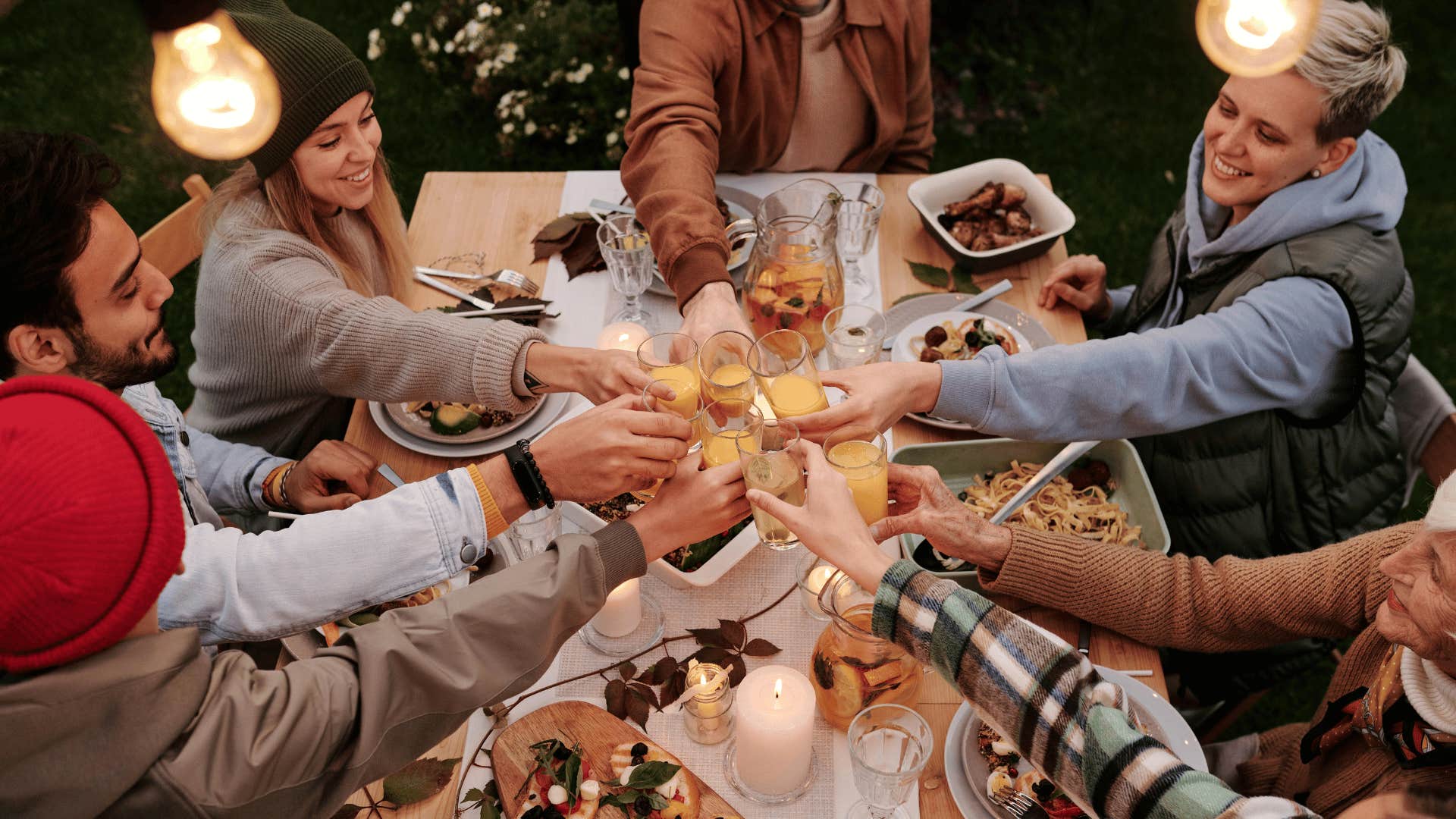The best way to avoid having an affair is to be wary of people who don’t care about the happiness of your marriage. Many people worry that the only solution to this problem is to avoid anyone of the opposite gender, but that’s simply not true. Think about it: If you were to follow this advice to the extreme, half the world would be off-limits to every married person.
Men and women interact all the time despite the reality that a physical attraction could spark between them. Well-dressed women sit at the boardroom table with dapper men, stylish female sales representatives drop in on male doctors during lunch breaks, and well-built male physical trainers gently place their female clients’ body parts in the proper positions on the elliptical machine. Moreover, men and women interact in work cubicles, university lab benches, art, acting, and yoga studios throughout the world.
If you can master these nine skills, you can affair-proof your marriage:
1. Ensure your partner feels comfortable around your friends
 Keira Burton | Pexels
Keira Burton | Pexels
He or she doesn’t have to necessarily have to feel spiritually bonded to your friend, but there should be a sense of comfort about your spending time with him or her.
A 2022 Frontiers in Psychology study suggests that ensuring your partner feels comfortable and included within your friend group is crucial for a healthy marriage. This fosters trust, strengthens the relationship, and can prevent potential conflicts or feelings of isolation from a lack of social integration with your partner’s social circle.
2. Keep family bonds
 Askar Abayev | Pexels
Askar Abayev | Pexels
Your new friend must be willing to form a connection with your spouse and your family. Not just as a way to spend more time with you, but out of genuine interest in being a part of your complete life.
A 2016 study suggests that close family ties can benefit marital stability, while other research indicates they can cause stress and conflict. Close family ties can help couples develop stable marriages by providing models, building a sense of belonging, sharing resources, and buffering conflict.
3. Hide no secrets from your partner
 Davide Zanin Photography | Shutterstock
Davide Zanin Photography | Shutterstock
You should neither give nor receive any secret communications. Any contact with your friend should be in full knowledge of your partner.
If you find yourself meeting with your friend by accident somewhere, you should immediately zip a text back home telling your partner that you ran into each other.
4. Don’t speak poorly of your relationship or partner
 MDV Edwards | Shutterstock
MDV Edwards | Shutterstock
Under no circumstances should your friendship include discussions about your mate’s faults in anything but the most general terms.
Explaining a husband’s mismatched shirt and tie as “Scott doesn’t have a good eye for color,” is acceptable; commenting that the lawn isn’t mowed because “Scott is too lazy to get around to it” is not.
Findings from a 2021 study indicate that speaking poorly about your relationship, whether to friends, family, or even yourself, can harm its health. This can often lead to decreased satisfaction, increased conflict, and a higher likelihood of breakups due to the negative impact on trust, commitment, and the overall perception of the partnership. It’s generally considered a sign of poor communication and can exacerbate existing problems.
5. Don’t let others speak poorly of their own relationship or partners
 Antonio Guillem | Shutterstock
Antonio Guillem | Shutterstock
Likewise, your friend should not use your relationship to talk about faults in his or her partner.
6. Never value a friendship above your partner
 Stokkete | Shutterstock
Stokkete | Shutterstock
Never be in a position to say to your friend, “I’m telling you this because my partner wouldn’t understand,” or otherwise hint that your friend appreciates you in ways that your spouse does not.
A 2012 study published by the Journal of Social and Personal Relationships suggests that while strong friendships are crucial for overall well-being, prioritizing a friendship over a romantic partner can be detrimental to a relationship. A healthy dynamic involves valuing both aspects equally and fostering a sense of partnership where both needs are necessary. Essentially, a partner should be seen as something other than replaceable by a friend.
7. Avoid situations that could stir up physical intimacy
 G-Stock Studio | Shutterstock
G-Stock Studio | Shutterstock
Avoid situations that can stir up physical intimacy, such as candlelight dinners, sitting in saunas without spouses around, or entering a dance marathon together. You may not feel any romantic inclination toward your friend before doing these things, but the right situation can breed new interest.
Research published in the Journal of Personal Relationships suggests that discussing intimate issues with a friend can have positive and negative effects on a marriage, depending on the nature of the conversation, the quality of the friendship, and how open the individual is with their partner about these discussions. While sharing with a trusted friend can provide emotional support and perspective, it can also negatively impact a marriage if it leads to excessive negativity, criticism of the partner, or a lack of open communication within the couple themselves.
8. Include your spouse in friend get-togethers when you can
 fizkes | Shutterstock
fizkes | Shutterstock
You should not develop habits of exclusively having alone time with your friends. It’s critical that your family periodically be included in get-togethers. Be very cautious about regular rituals that you and your friend have.
It’s okay to say, “We always watch the Fourth of July parade together,” but not, “Every morning, we go on a power walk together,” unless you have your partner’s approval.
A majority of women and nearly half of men say it’s unacceptable to have dinner or drinks alone with someone of the opposite gender other than their spouse. Results from a 2021 study show the extent to which the potential for intercourse is an implicit part of our interactions.
9. Pay attention to your emotions and attractions
 Josep Suria | Shutterstock
Josep Suria | Shutterstock
If you begin to feel a romantic attraction to the other person, or if this person begins to express one to you, you must immediately break off all relationships with that person.
I’m glad we live in a society where men and women can share time, thoughts, and even friendships. But when friendship crosses the line, married men and women must be vigilant for risks of potential infidelity, and do everything in their power to be sure that any individual friend is also a friend of the marriage.
Paying attention to your emotions and your partner’s emotional cues can help protect your marriage. According to Dr. John Gottman, successful couples are attentive to their partner’s bids for connection. Bids are requests to connect that can be verbal, nonverbal, or physical. Couples who ignore their partner’s bids 50–80% of the time are more likely to get divorced.
Can people who are potentially attracted to each other form friendships and still be true to their marriage? I believe they can. It is possible to be open to spending time with, work, study, or create side-by-side with someone.
But as the friendship evolves, it’s the responsibility of the married individual to pay attention to the nature of the relationship. Feeling comfortable around someone is a blessing. But when friendship crosses the line and you or they are starting to feel very close emotionally, it may be a big warning sign.
When you’re with someone who could tempt you to compromise your commitment to your spouse, ask yourself one question: Is this new person a friend of my marriage? If he or she is a great buddy of yours but doesn’t care to know about, or interact with, your spouse, then that could spell trouble for your marriage.
If you’re not sure about what kind of friend this is, it may take some soul-searching on your part. There are instances when friendship crosses the line, and it’s not clear whether someone has crossed a boundary and become a threat to the marriage. In those cases, you must seek the opinion of the one person who matters most: your spouse.
If you’re wary of a friendship that may end up crossing the line, keep these guidelines in mind. Is this person considered a true friend, or someone who will put your marriage at risk?
Scott Haltzman, M.D., is board-certified in Psychiatry and is a Distinguished Fellow of the American Psychiatric Association. He has appeared on the Today Show, 20/20, Good Morning America, Rachael Ray, and in TIME Magazine, as well as others.

